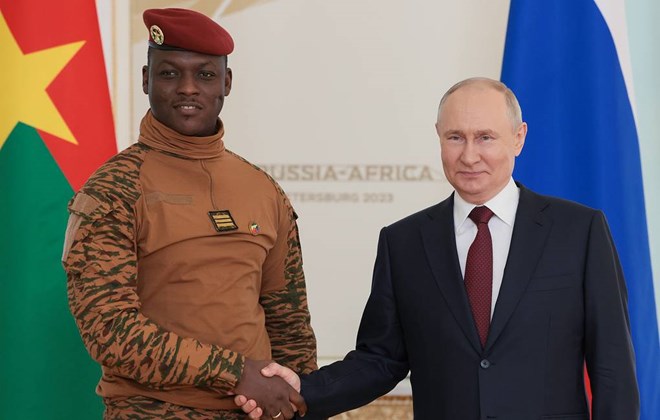Burkina Faso has completed a major nuclear energy agreement with Russia. The West African nation signed the final paperwork on June 19, 2025, during the St. Petersburg International Economic Forum.
The deal brings Russia’s state nuclear company Rosatom into Burkina Faso to build nuclear power plants and research facilities. Energy Minister Yacouba Zabré Gouba signed for Burkina Faso, while Rosatom Director General Alexey Likhachev represented Russia.
This agreement caps off months of negotiations that started with a roadmap signed in March 2024. Four additional memorandums followed throughout 2024 to set up the framework.
Russia Expands Nuclear Footprint in Africa
The Burkina Faso deal is part of Russia’s broader push into African energy markets. Rosatom has now signed nuclear partnerships with at least 20 African countries, according to recent analysis.
Other major Russian nuclear projects in Africa include a $30 billion plant in Egypt and agreements with Rwanda and Nigeria. In June 2024, Russia also signed a deal with Guinea for floating nuclear power plants.
Mali joined Burkina Faso in the Russian nuclear program. Both countries are now part of what Putin approved as a combined nuclear initiative for the Sahel region.
Energy Crisis Drives Nuclear Push
Only 21% of Burkina Faso’s population has access to electricity. The country ranks among the world’s least electrified nations. Most energy comes from imported oil and biofuels, making power expensive and unreliable.
The nuclear program aims to double Burkina Faso’s power capacity by 2030. This could end frequent blackouts that hurt economic growth and daily life across the country.
Burkina Faso’s military government sees nuclear power as a path to energy independence. The country has moved away from traditional Western partnerships since a 2022 military coup.
Technical Details and Timeline
Under the agreement, Rosatom will handle the complete nuclear fuel cycle. This includes building reactors, supplying nuclear fuel, training workers, and managing radioactive waste.
The deal covers both power generation and medical isotope production. Rosatom will also help Burkina Faso develop nuclear safety regulations and train local technicians.
Minister Gouba said they are now waiting for Rosatom’s technical and financial proposal. This will determine the exact scope and timeline for construction.
No public information exists yet on project costs or completion dates. Rosatom typically takes 7-10 years to build nuclear plants in emerging markets.
Geopolitical Implications
The nuclear deal strengthens Russia’s influence in francophone West Africa. Burkina Faso has shifted toward Moscow since breaking ties with France and other Western allies.
Burkina Faso, Mali, and Niger formed the Alliance of Sahel States in 2023. All three countries formally left the West African economic bloc ECOWAS in January 2025.
Russia has also expanded mining operations in Burkina Faso. Nordgold, a Russian company, received a major gold mining license in April 2025.
Security experts raise concerns about Russia’s nuclear safety record. The Royal United Services Institute points to Russia’s military occupation of Ukraine’s Zaporizhzhia nuclear facility as evidence of poor safety practices.
The International Atomic Energy Agency has not publicly commented on the Burkina Faso agreement. Nuclear infrastructure requires extensive regulatory oversight and long-term safety monitoring.
Regional Energy Transformation
The Russian nuclear program could reshape West African energy markets. Traditional power sources like hydroelectric dams have become unreliable due to climate change.
Burkina Faso’s northern regions face frequent droughts that reduce hydroelectric output. Nuclear power offers a more consistent energy source that doesn’t depend on weather patterns.
However, nuclear technology requires significant upfront investment and specialized expertise. Most African countries lack the technical infrastructure to safely operate nuclear facilities.
Rosatom’s model includes comprehensive training programs and long-term operational support. The company maintains nuclear facilities in partner countries rather than just building and leaving.
The Burkina Faso deal represents a major shift in global nuclear expansion. Most new nuclear projects are now happening in developing countries rather than wealthy nations.














